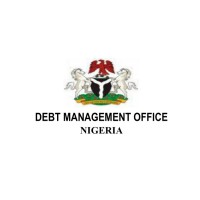This increase reflects the combined effects of rising domestic borrowing and the impact of exchange rate depreciation on external debt when converted to naira
Nigeria’s public debt rises by N8.02 trillion to N142.3 trillion in Q3 2024 – DMO
Nigeria’s public debt increased by N8.02 trillion to N142.3 trillion in Q3 2024, according to the latest data released by the Debt Management Office (DMO) on Tuesday. As of September 30, 2024, the total public debt rose by 5.97% compared to N134.3 trillion in June 2024.
This increase reflects the combined effects of rising domestic borrowing and the impact of exchange rate depreciation on external debt when converted to naira.
External Debt Surge Driven by Currency Depreciation
Data from the DMO revealed that Nigeria’s external debt in dollar terms grew marginally by 0.29%, increasing from $42.90 billion in June to $43.03 billion in September. However, the naira equivalent of external debt surged significantly by 9.22%, rising from N63.07 trillion to N68.89 trillion during the same period. This increase was largely driven by the naira’s depreciation against the US dollar, with the exchange rate weakening from N1,470.19/$ in June to N1,601.03/$ by the end of September.
Rising Domestic Debt
Domestic debt showed mixed performance, declining by 5.34% in dollar terms, from $48.45 billion in June to $45.87 billion in September. In naira terms, however, domestic debt increased by 3.10%, rising from N71.22 trillion to N73.43 trillion. The Federal Government accounted for the majority of this domestic debt, which rose from N66.96 trillion in June to N69.22 trillion by September. In contrast, domestic debt owed by states and the Federal Capital Territory (FCT) saw a slight decline, from N4.27 trillion to N4.21 trillion.
Federal Government bonds remained the largest component of domestic debt, increasing by 4.47% to N54.65 trillion in September, up from N52.32 trillion in June. This accounts for 78.95% of the total domestic debt stock, an increase from 78.13% in the previous quarter. The issuance of bonds in naira terms was the primary driver of this growth. Additionally, Nigeria introduced its first domestic dollar-denominated bond, adding N1.47 trillion to the debt stock.
Other Domestic Debt Components
Nigerian Treasury Bills The second-largest domestic debt component, Treasury Bills, decreased slightly by 0.66% to N11.73 trillion, down from N11.81 trillion in the previous quarter. This reduction aligns with efforts to moderate short-term debt and mitigate rollover risks.
Promissory Notes: Promissory notes, used to settle government obligations, grew by 5.80%, increasing from N1.67 trillion in June to N1.77 trillion in September.
FGN Sukuk: Federal Government Sukuk, which serves as an infrastructure funding instrument, decreased by 9.14% to N992.56 billion, down from N1.09 trillion.
FGN Savings Bonds: Savings bonds increased by 16.11% to N64.09 billion, reflecting growing retail investor participation.
Green Bonds: Green bonds remained unchanged at N15 billion, maintaining their minimal contribution of 0.02% to the domestic debt stock.
External Debt Components
An analysis of Nigeria’s external debt stock of $43.03 billion in September 2024 showed a largely stable profile, with only minor adjustments in multilateral and bilateral obligations.
Multilateral Debt: Multilateral obligations rose by 0.67% to $21.77 billion, accounting for 50.60% of the total external debt. This increase was driven by additional disbursements from institutions like the World Bank, which added $513.06 million to its International Development Association portfolio, now totaling $16.84 billion.
Bilateral Loans: Bilateral debt decreased slightly by 1.33%, falling from $5.89 billion to $5.81 billion. Loans from China, Nigeria’s largest bilateral lender, declined by $99.98 million, while obligations to France and Germany remained stable.
Commercial Loan: Commercial loans, primarily Eurobonds, remained unchanged at $15.12 billion, representing 35.14% of total external debt.
In December 2024, Nigeria raised $2.2 billion through its Eurobond auction, marking its return to international capital markets. The funds were secured through two bonds: a 6.5-year bond of $700 million at 9.625% and a 10-year bond of $1.5 billion at 10.375%. Total subscriptions exceeded $9 billion, but only $2.2 billion was allotted. These proceeds are expected to support the 2024 budget amid revenue shortfalls and mounting public spending pressures.
The addition of Eurobond proceeds in Q4 2024 is projected to further increase the country’s external debt. The rising debt profile, alongside naira depreciation and an increasing reliance on domestic borrowing, raises concerns about Nigeria’s debt sustainability.















